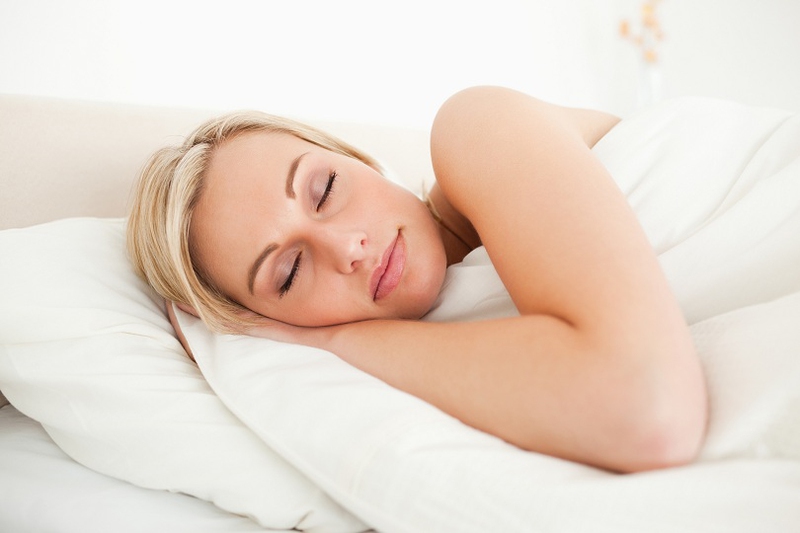If you experience spasms while you’re sleeping or preparing to sleep, you might well be suffering from a medical condition called myoclonus or night tremors. This refers to an involuntary contraction and jerking of the muscles indefinitely at any time during the day. One common form of myoclonus is hiccups. Another such form of mild myoclonus is sleep starts. When spasms and tremors occur at night, you are suffering from night tremors. Adults are at a higher risk of getting night tremors.

What Causes Body Tremors at Night?
Tremor may not be caused by a life-threatening ailment though it is really troublesome and compellingly noticeable. Slight degree of tremor can be available in everyone’s behaviors. Sometimes, in an individual’s brain something is not compatible with the bodies’ movements. Some diseases like stroke, multiple sclerosis, and neurodegenerative drawbacks are frequently responsible for the occurrence of the tremor. People who take alcohol, steroids, or amphetamine regularly are under distinct risks of having tremor. Tremor could also be caused by the thyroid disease, liver failure, etc. The most interesting thing is that it is still unknown why an individual catches the tremor though it seems to be very common in people.
Signs and Symptoms of Body Tremors at Night
While night tremors can occur in people in prime health, they are typically the symptom of a disease. Night tremors begin as sleep starts, sudden jolts as a person starts to fade into sleep. The tremors then begin in the first stages of the sleep cycle. Tremors can manifest as spasms, normally in the arms or legs. In more severe cases, night tremors will cause the sufferer to wake up feeling exhausted. Their muscles can be sore and potentially even pulled, and they will feel as though they have been exercising.
People may have truly devastating body tremor at night. Some individuals can’t eat because the tremor resists them from getting a utensil or glass into the mouth. Since the body tremor takes place by means of being driven by the central nervous system and is caused by the involuntary movement of the body, it can affect particular parts of the body. Hands can be frequently affected by body tremor. However, some other organs such as legs, chin, or head can be involved with the entire process of body tremor at night. This indisposition can occur to the voices of people as well.
Diagnosis of Body Tremors at Night
During the first stage of diagnosis, doctors analyze whether the tremors occur at day or night only. It is also made sure that sensory action, reflexes and muscle function is in order. Tremors can also be inherited for which a family check is made. To ascertain the chemical probability of getting tremors, a chemical check comprising of tests is made. Contributing causes such as cancer, thyroid malfunction, or use of substances that may cause tremors are found. MRI and CT Scans can be used to know if the brain has been structurally damaged which may contribute to tremors.
Neurological exams are performed to see if the patient can move his fingers around, write with a pen or the like. Etymological exams are also conducted to ascertain muscle function and similar actions.
Treatment of Body Tremors at Night
Medication
Night tremors are not an incurable ailment, and the most typical treatment is a tranquilizer. The tranquilizer is given in slowly increasing amounts nightly, until the tremors stop altogether. Tranquilizers function by sedating the nervous system and causing drowsiness. For lesser tremors, patients are advised to circumscribe caffeine consumption and avoid stress.
Physical Therapy
Physical therapy is an emerging treatment for those experiencing night tremors. The therapist examines the localization of the tremors, motor control, muscular strength, and overall functionality skills. Bracing limbs experiencing tremors or holding the afflicted arm close to the body is helpful in many cases in regaining motor control. Exercises can be used to regain coordination and balance, but is not effective in each case. It is often recommended to use various weights, splints, or other pieces of adaptive equipment, as well as specialized dining wares for eating.
Surgeries
In the most severe cases in which drugs cannot control the tremors, surgery can be used to calm the tremors. Lesions are created in the thalamus, a region of the brain, and electrodes are implanted to send electrical signals of high frequency to ease many types of tremors. This method is extraordinarily effective in almost every case.

View All Comments /Add Comment